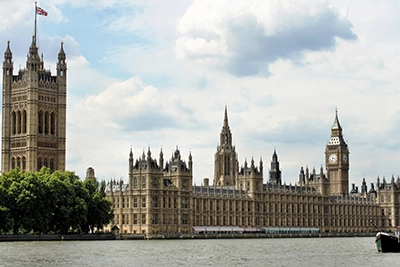This report sets out in stark detail the scale of the homelessness crisis with councils facing unsustainable financial pressures as a result.
The report is calling for a more effective response at a national policy level and identifies seven specific areas with identified recommendations for action by government.
Read a copy of the report here
Summary of Conclusions and Recommendations
1. Local authorities need more resources to focus on preventing homelessness.
In 2023/24 local authorities spent around £3.1 billion on homelessness of which £2.1 billion was used to provide temporary accommodation. Homelessness Prevention Grant funding amounted to about £440 million. In practice, the high numbers of people already in the homelessness system mean that local authorities use a significant portion of it to fund the provision of temporary accommodation, particularly in areas of poor affordability, rather than spending it on prevention work.
Recommendation: MHCLG needs to set out plans to incentivise and work with local authorities to improve homelessness prevention.
2. It is unacceptable that B&B accommodation is being used routinely to house people rather than as a last resort.
As at June 2024 almost 6,000 homeless families with children were being housed in B&Bs, and almost 4,000 of these families had been there for longer than the statutory maximum period of six weeks.
Recommendation: MHCLG should strengthen its use of HAST advisers in supporting local authorities to reduce their use of B&B accommodation and provide support to local authorities with high rates of temporary accommodation to plan how to reduce their reliance on it.
3. Too many people are being placed in temporary accommodation outside of their local area.
The homelessness legislation and code of guidance state that local authorities should, as far as possible, avoid placing households out of area, however, over the period 2018–19 to 2023–24, the number of households placed out of area increased by 42%. There is a lack of data around how far away from their local areas people are being placed and the wider consequences resulting from this.
Recommendation: MHCLG should improve its data on out of area placements as a matter of urgency and use the data to encourage better coordination between local authorities, to minimise the number of households placed out of area incentivise councils to use local providers.
4. The government is not considering the impact on homelessness when setting Local Housing Allowance (LHA) rates.
Capping and freezing LHA rates have reduced the income households can derive from benefits in real terms and 45% of households now face a shortfall between the LHA they receive and the rent they pay. Also, local authority temporary accommodation funding is essentially based on the 2011 LHA rate and has not kept up with rising temporary accommodation costs.
Recommendation: DWP should write to the Committee setting out, in detail, its justification for the levels of LHA it has set, both for individuals and for local authorities with regard to the temporary accommodation subsidy.
5. Tackling homelessness has long been hampered by the absence of a joined up, cross-government approach.
Examples
- There are multiple funding streams that can be used to tackle homelessness, which can be challenging for local authorities to administer.
- There are cases of the Home Office outbidding local authorities when seeking to accommodate asylum seekers in their area.
Recommendation: MHCLG should provide the Committee with further details of how its proposed cross-government homelessness strategy will generate practical improvements,
6. The homelessness problem is being exacerbated by a severe shortage in housing supply, and especially affordable housing.
A significant ramping up of the affordable housing supply is required to achieve a substantial impact on homelessness levels, particularly in areas where homelessness pressures are acute.
Recommendation: MHCLG should provide the Committee with an update on how its proposed new housing strategy will achieve practical improvements in the delivery of new homes.
7. Despite legislation designed to tackle well-established problems and gaps in regulation, MHCLG has made no progress in improving the oversight of the supported housing sector.
The Supported Housing (Regulatory Oversight) Act came into force in August 2023. This brought forward national standards for support and looked to give local authorities power to tackle poor quality supported housing in their area, yet by the end of 2024 the Act had not been implemented. Ongoing gaps in regulation mean landlords can provide costly, sub-standard housing with little support, supervision or care.
Recommendation: MHCLG should implement the provisions of the Supported Housing (Regulatory Oversight) Act as quickly as possible.



